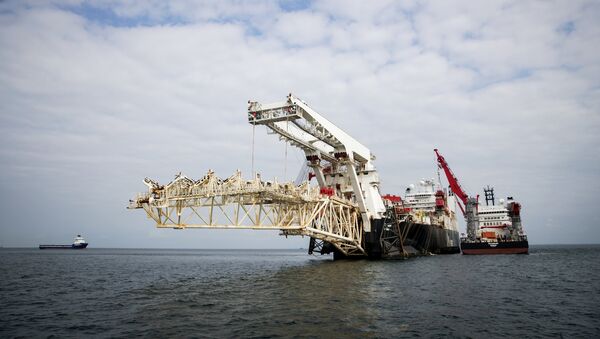The US Department of Treasury late on Friday said that the sanctions envisaged in the NDAA have entered into force and the agency demanded the immediate curtailment of works on the Nord Stream 2 and TurkStream projects.
“Upon signature by the President on December 20, 2019, the provisions of Section 7503 of the NDAA immediately became effective. In order to comply with the wind-down provisions of Section 7503(d) of the NDAA, involved parties that have knowingly sold, leased, or provided vessels that are engaged in pipe laying at depths of 100 feet or more below sea level for the construction of Nord Stream 2 or Turkstream must ensure that such vessels immediately cease construction-related activity”, the department said on late Friday.
According to the Treasury Department, Washington could make “good-faith wind-down exceptions” for the safety of the pipelines, protecting human life and avoiding environmental or other damage.
Earlier in the day, moments before Trump enacted the enormous new Pentagon budget, Swiss-based contractor - a partner of European gas pipeline project - Allseas announced the suspension of its "Nord Stream 2 pipelay activities".
The NDAA bill, primarily designed to authorize the unprecedented $738 billion 2020 budget for the Pentagon, calls for tough and mandatory restrictions on Nord Stream 2 and TurkStream pipelines, and bars military-to-military cooperation with Russia. The bill also sanctions Turkey over its acquisition of Russian S-400 air defence systems and prohibits the transfer of F-35 jets to Ankara.
Turkish President Recep Tayyip Erdogan announced earlier in the day that Ankara would impose counter-sanctions in response to Washington’s measures. Turkey has threatened to close the Incirlik airbase, currently used by the US military.
The Nord Stream 2 is a joint venture between Gazprom and five European companies: France's ENGIE, Austria's OMV, the UK-Dutch Royal Dutch Shell, and Germany's Uniper and Wintershall. The 745-mile twin gas pipeline will carry up to 55 billion cubic meters (1.942 trillion cubic feet) of fossil fuels per year from Russia to Germany, passing through territorial waters or exclusive economic zones of Denmark, Finland, Germany, Russia and Sweden.
The TurkStream is projected to be a 577-mile twin pipeline that will transfer gas from large reserves in Russia to Turkey and further up to southern and southeastern Europe. The launch is expected on 8 January 2020.



